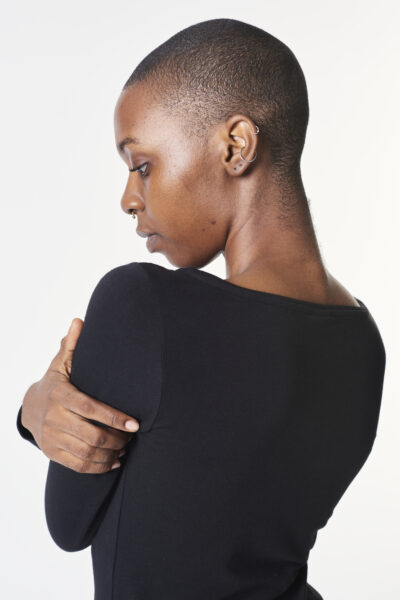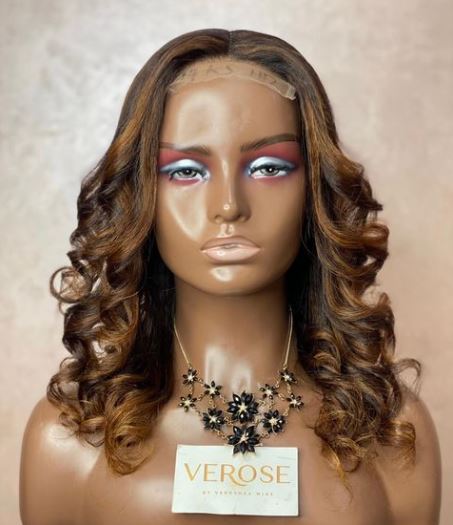October is Breast Cancer Awareness Month; a time to raise awareness about the importance of early detection and screening, spreading the word about mammograms, and encouraging families, communities, and individuals to get involved. Cancer is the second leading cause of death worldwide and Breast cancer is the most common kind of cancer in women. As we commemorate this crucial month, we must not only emphasize the significance of early detection but also offer support to those facing the challenging journey of cancer treatment.
A common side effect of cancer treatment especially for those undergoing chemotherapy, is hair loss. Chemo-related hair loss can be a source of stress, and the emotional and physical toll of losing your hair can be overwhelming, but there are ways to cope and regain your confidence during this challenging time.
Understanding cancer-related hair loss

It is a common misconception that all cancer treatments cause hair loss. However, according to the American Society of Clinical Oncology (ASCO), whether or not your hair is affected by cancer treatment depends on the type of treatment and the dose. For some cancer patients, hair loss may be one of the most distressing side effects of cancer treatment. It can leave one feeling vulnerable, self-conscious, and exposed as a cancer patient.
For many people, hair loss is a public sign of the cancer diagnosis and a reminder that a patient’s life has changed which may trigger feelings of anger and depression. Understanding why cancer-related hair loss happens can help one prepare mentally and emotionally for the changes to come.
Chemotherapy targets cancer cells that divide rapidly. According to the American Cancer Society, Hair loss happens when chemotherapy drugs damage the healthy, fast-growing cells responsible for hair growth. Some drugs can cause hair thinning or hair loss only on the scalp while others can also cause the thinning or loss of pubic hair, arm and leg hair, eyebrows, and eyelashes. Radiation therapy may also cause hair loss in the specific area of the body being treated.
Although hair loss does not always happen right away, it usually begins within 2 weeks of treatment and becomes more noticeable 1 to 2 months after starting therapy. However, the good news is that it’s almost always temporary, lost hair usually grows back after treatment ends, but it may not grow back the same as it was. It can grow back thinner or with a slightly different texture than before.
Tips for coping with hair loss related to cancer treatment
Adapting to hair loss and other appearance-related changes that accompany a diagnosis may be challenging. It is therefore essential to seek support from your healthcare team to explore effective coping strategies such as counseling and support groups to help you navigate this emotional journey. The emotional impact of hair loss can be substantial, but by preparing for it in advance, one can navigate this challenging journey with greater confidence. Here are some tips that can help you feel more prepared and help protect your hair as it grows back.
Cut your hair short before treatment: Consider getting a shorter haircut or even shaving your head before treatment starts. This will help you get used to having less hair and any shedding that occurs will be easier to manage. Cutting your hair before treatment begins may also help you feel like you have more control over the hair loss process.
Consider wigs and head coverings: If you feel self-conscious about hair loss, head covering might help, many women find comfort and style in head coverings. Scarves, hats, and turbans are great options that will also keep your head warm and protected from the sun while wigs offer the most natural appearance, and they come in a wide range of styles and colors.

Inquire about scalp cooling caps: Talk to your healthcare team about the benefits, limitations, and side effects of cooling caps. These are helmet-like hats filled with a cold gel or liquid that a patient will wear during chemotherapy infusions to help prevent hair loss. These caps work by narrowing the blood vessels beneath the skin of the scalp, which reduces the amount of chemotherapy medicine that reaches the hair follicles.
The overall reported success rate of scalp-cooling therapies is 50% to 80%. It is important to note that this success rate does not imply complete prevention of hair loss. Rather, it signifies that a patient typically experiences less than 50% hair loss, often leaving enough remaining hair that makes the use of wigs and hair coverings unnecessary.
Avoid irritants and take care of your scalp: As you experience hair loss, you might notice increased tenderness and itching on your scalp. A mild, fragrance-free moisturizing shampoo and conditioner can help offer relief. It’s important to maintain this gentle hair care routine throughout your chemotherapy treatment and during the initial months when your hair begins to grow again.
During this phase, it’s advisable to steer clear of hair dye, relaxers, and other chemical treatments, as the newly growing hair will tend to be fragile and susceptible to breakage. In addition to avoiding chemical treatments, treat any remaining hair or new growth with care to prevent damage. It’s best to avoid the use of hair dryers, curling irons, and other heated styling tools that could potentially harm the delicate, growing hair. By taking these precautions, you can help protect your scalp and promote healthy hair regrowth.
Chemo-related hair loss affects people in different ways. For many people, it can be an emotional challenge that affects their self-image and quality of life. If you find it difficult to cope with hair loss or other aspects of your treatment, consider joining an online or in-person support group designed for those undergoing cancer treatment. These support groups offer a unique platform where you can openly discuss your experiences and learn from others who are grappling with similar challenges.
One such resource is the Faraja Cancer Support Trust, a dedicated center providing comprehensive emotional, practical, and healing support to anyone affected by cancer. You might also be interested in connecting with beauty experts who can help you manage any concerns you have about your appearance.

